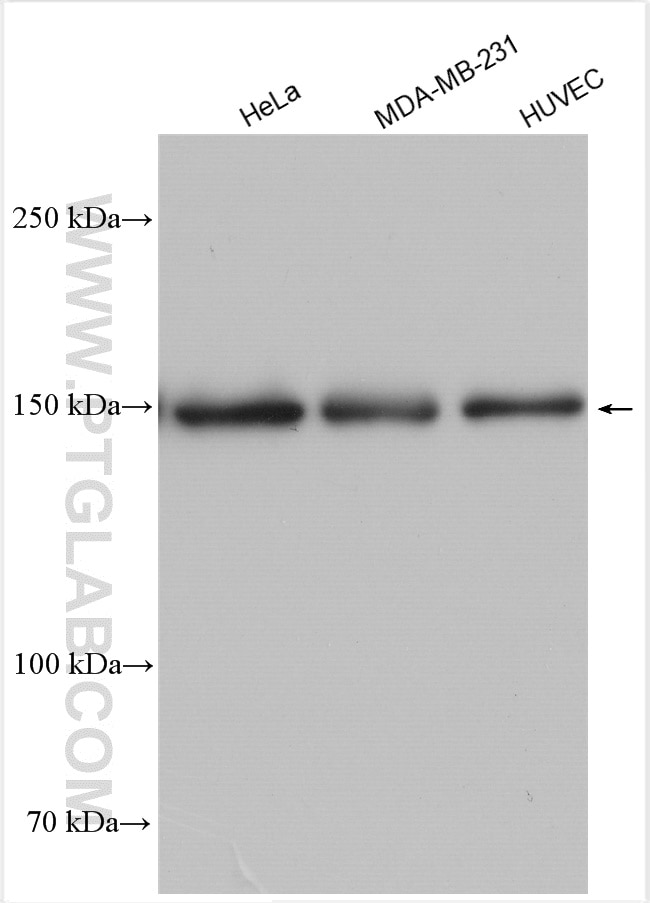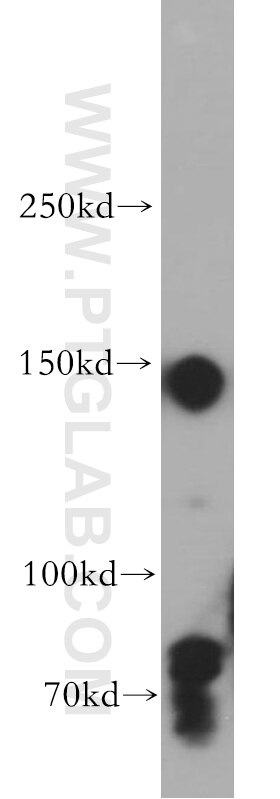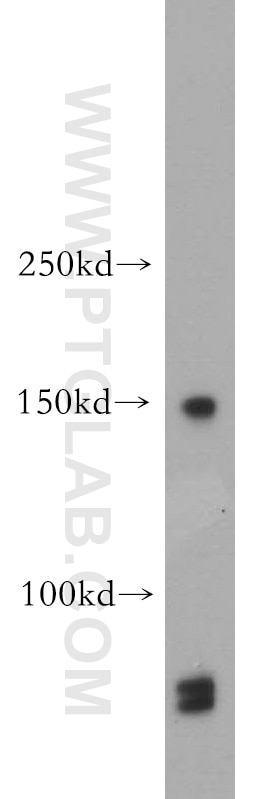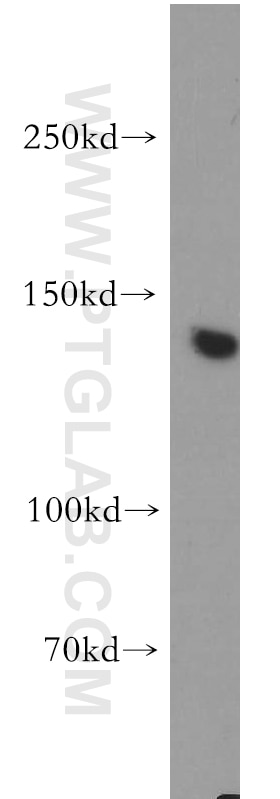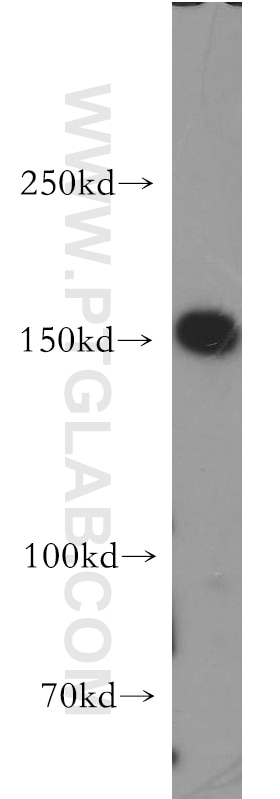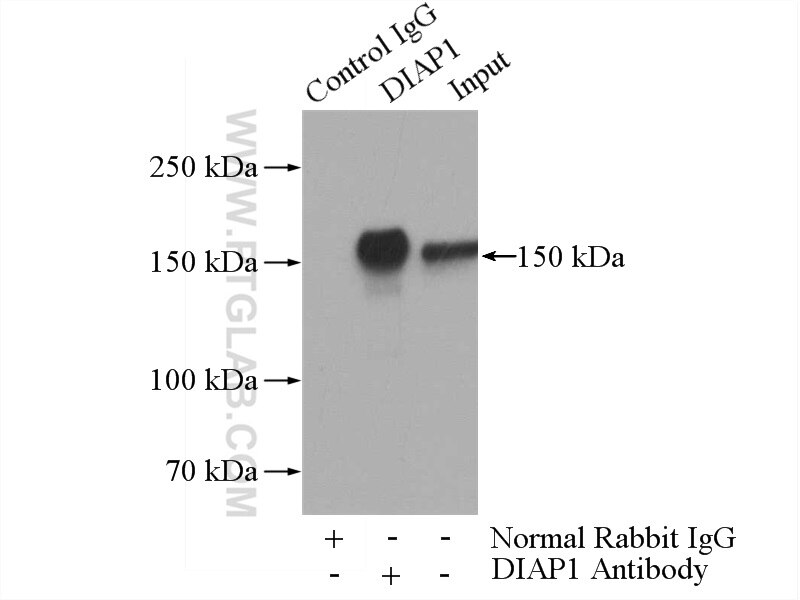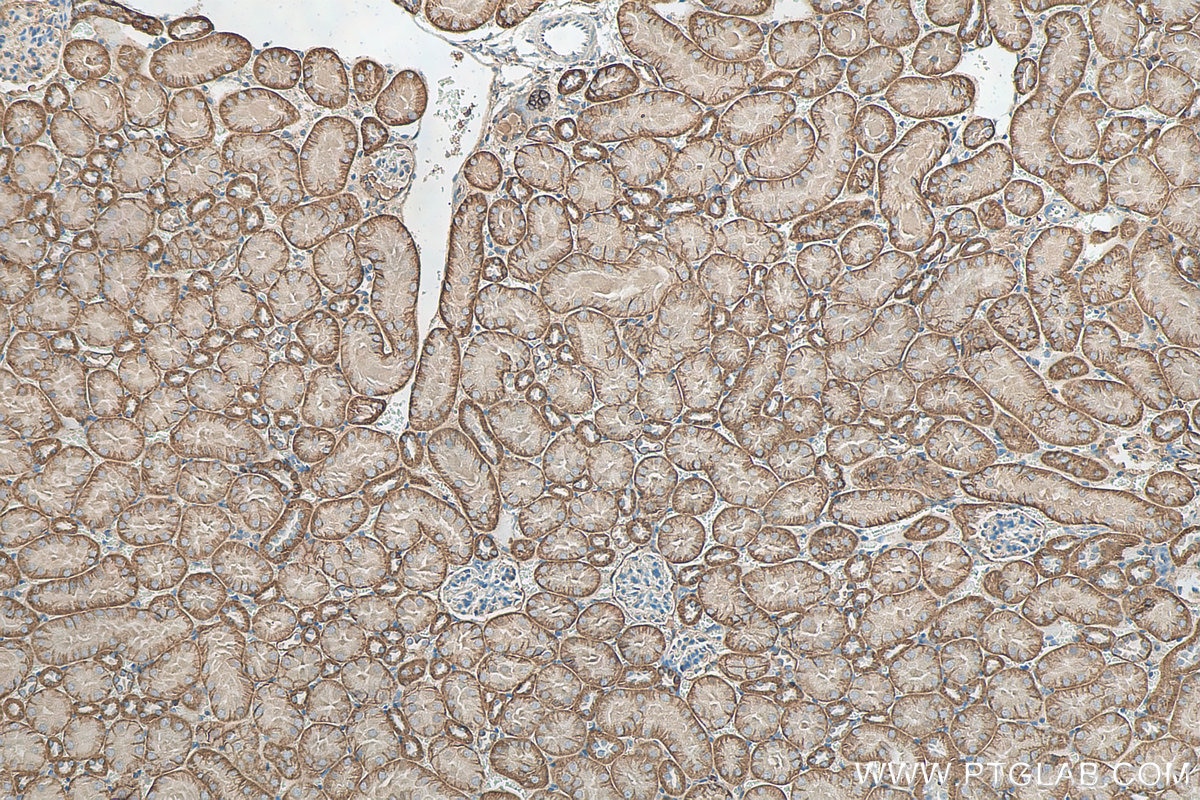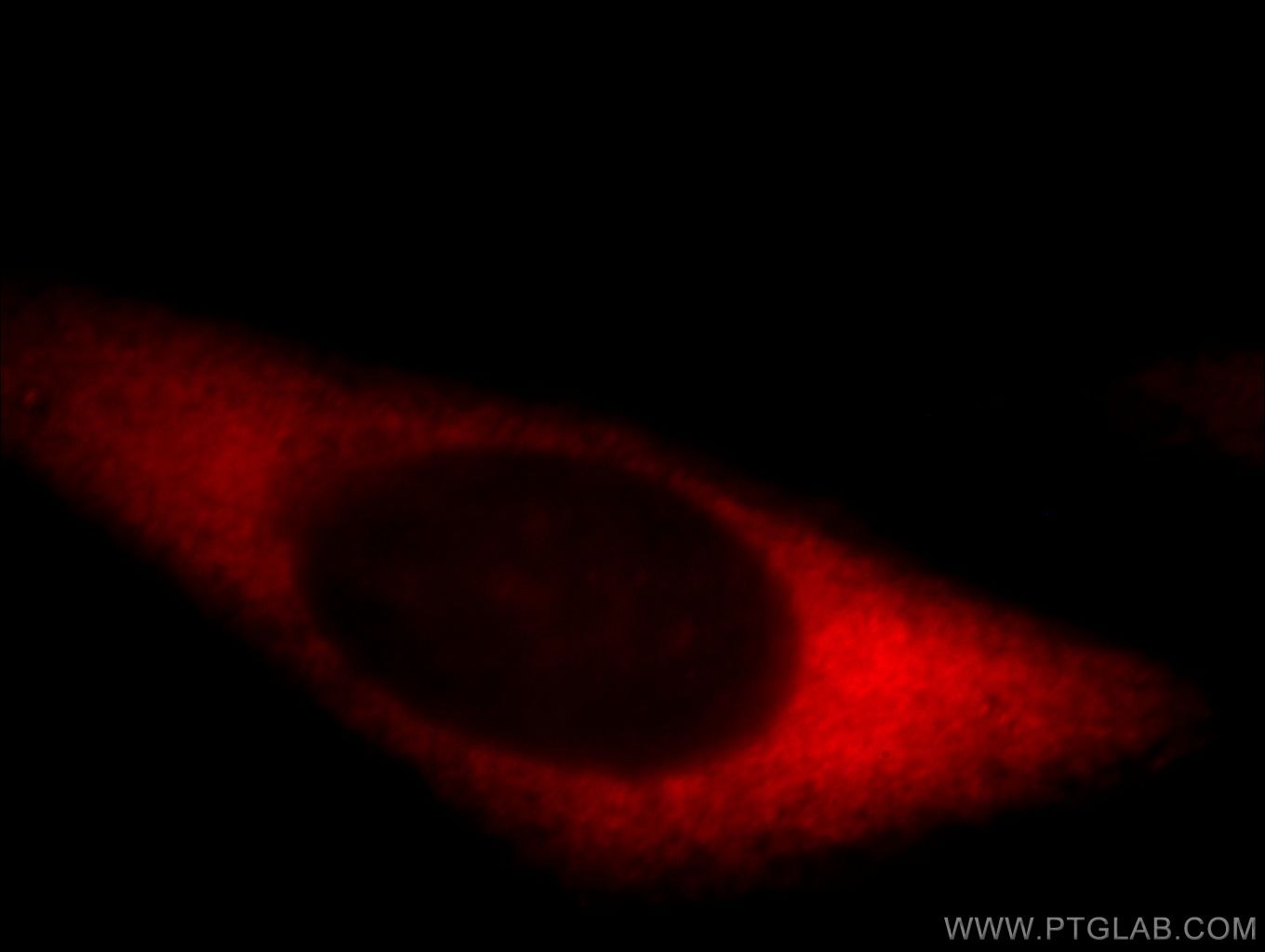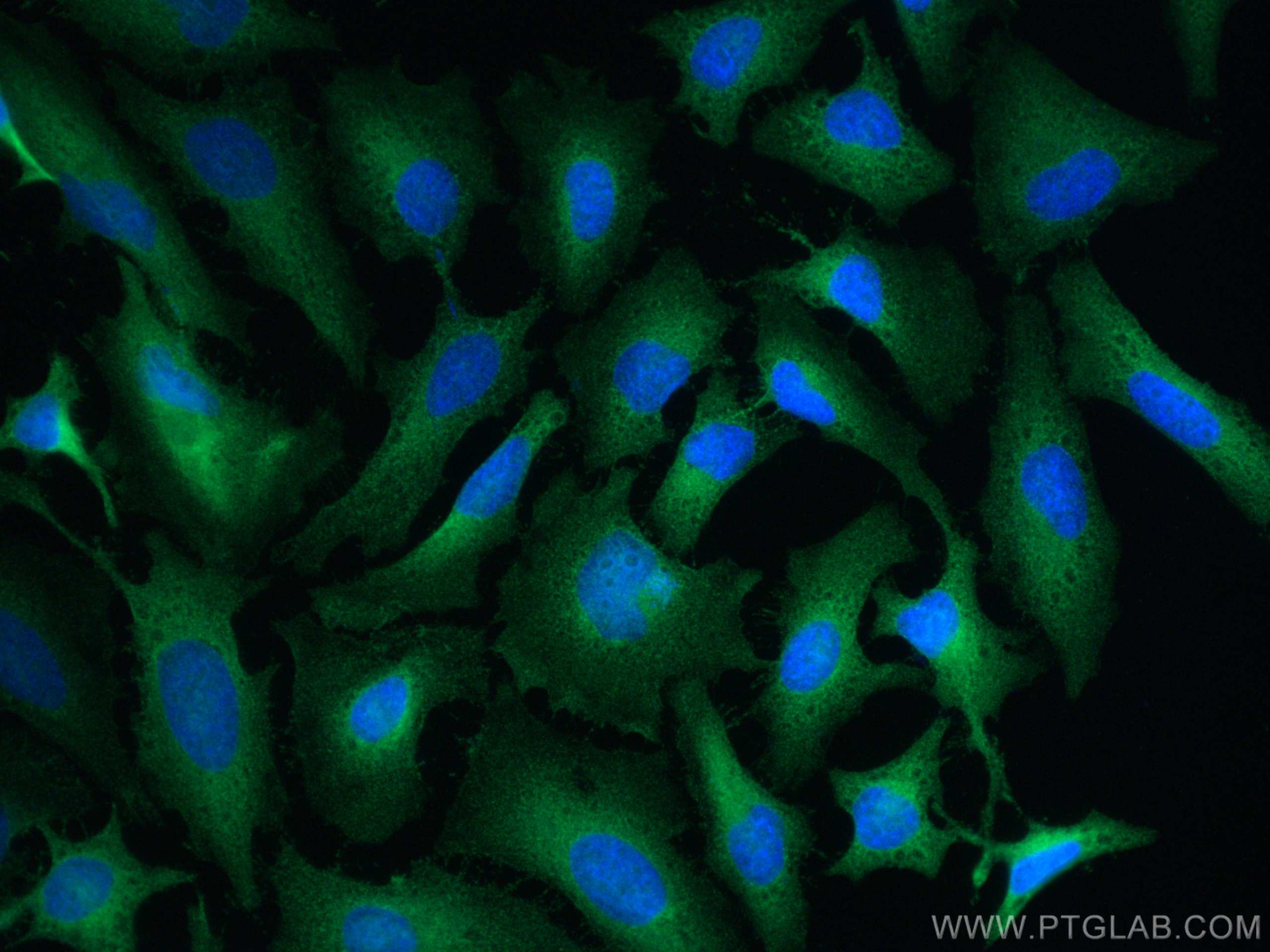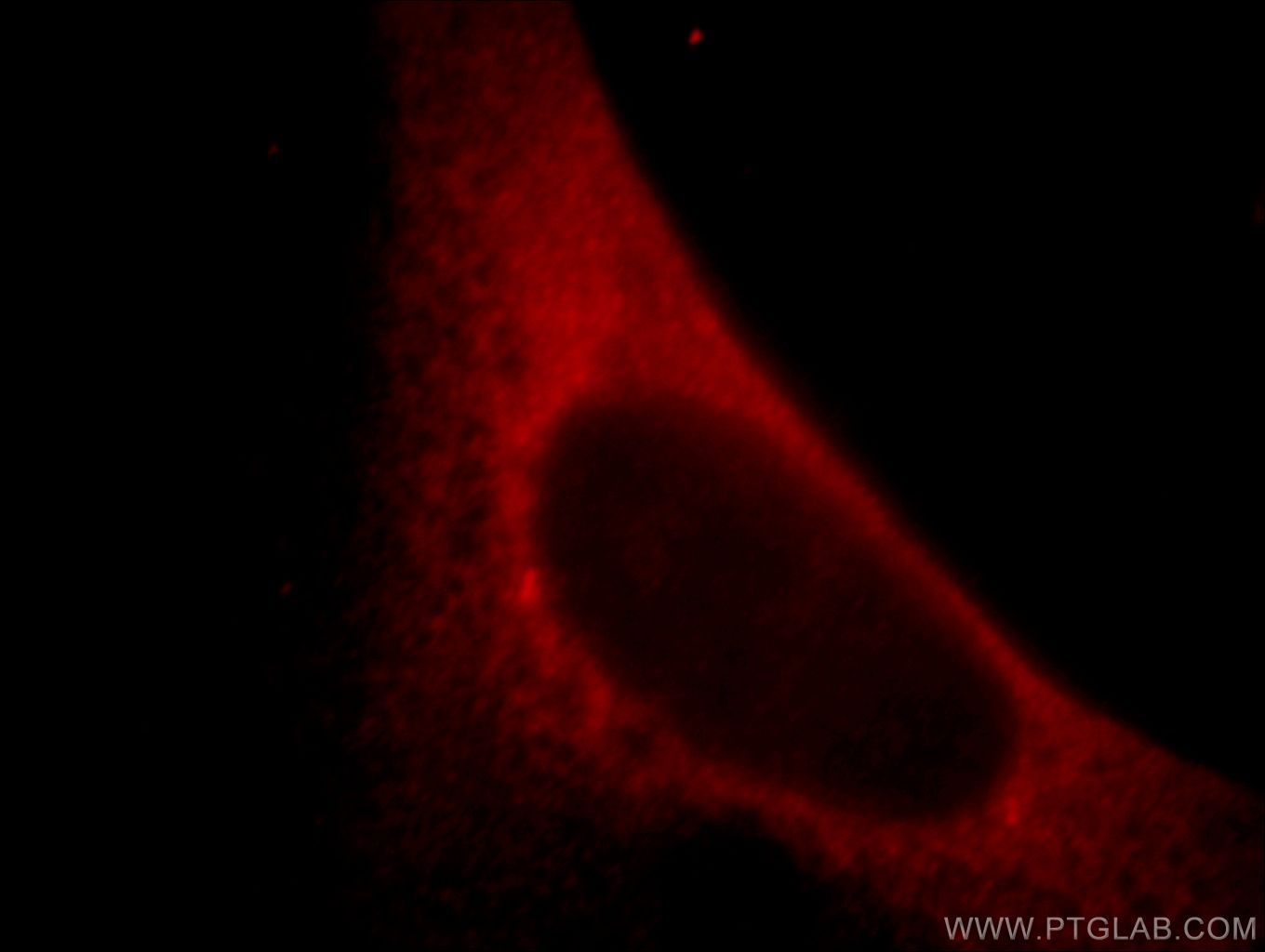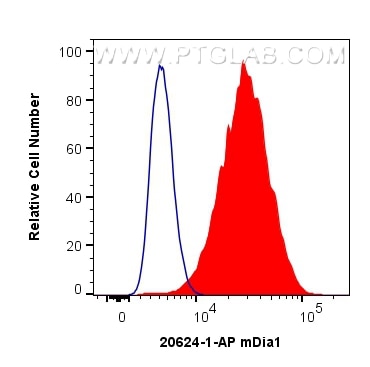Validation Data Gallery
Tested Applications
| Positive WB detected in | HeLa cells, human heart tissue, human skeletal muscle tissue, COS-7 cells, NIH/3T3 cells, MDA-MB-231 cells, HUVEC cells |
| Positive IP detected in | HeLa cells |
| Positive IHC detected in | mouse kidney tissue Note: suggested antigen retrieval with TE buffer pH 9.0; (*) Alternatively, antigen retrieval may be performed with citrate buffer pH 6.0 |
| Positive IF/ICC detected in | HeLa cells, HepG2 cells |
| Positive FC (Intra) detected in | HeLa cells |
Recommended dilution
| Application | Dilution |
|---|---|
| Western Blot (WB) | WB : 1:1000-1:8000 |
| Immunoprecipitation (IP) | IP : 0.5-4.0 ug for 1.0-3.0 mg of total protein lysate |
| Immunohistochemistry (IHC) | IHC : 1:50-1:500 |
| Immunofluorescence (IF)/ICC | IF/ICC : 1:50-1:500 |
| Flow Cytometry (FC) (INTRA) | FC (INTRA) : 0.40 ug per 10^6 cells in a 100 µl suspension |
| It is recommended that this reagent should be titrated in each testing system to obtain optimal results. | |
| Sample-dependent, Check data in validation data gallery. | |
Published Applications
| KD/KO | See 6 publications below |
| WB | See 18 publications below |
| IHC | See 3 publications below |
| IF | See 9 publications below |
| ChIP | See 1 publications below |
Product Information
20624-1-AP targets mDia1 in WB, IHC, IF/ICC, FC (Intra), IP, ChIP, ELISA applications and shows reactivity with human, mouse, rat, monkey samples.
| Tested Reactivity | human, mouse, rat, monkey |
| Cited Reactivity | human, mouse |
| Host / Isotype | Rabbit / IgG |
| Class | Polyclonal |
| Type | Antibody |
| Immunogen | mDia1 fusion protein Ag14523 相同性解析による交差性が予測される生物種 |
| Full Name | diaphanous homolog 1 (Drosophila) |
| Calculated molecular weight | 1272 aa, 141 kDa |
| Observed molecular weight | 140-150 kDa, 70 kDa |
| GenBank accession number | BC007411 |
| Gene Symbol | mDia1 |
| Gene ID (NCBI) | 1729 |
| RRID | AB_10858618 |
| Conjugate | Unconjugated |
| Form | Liquid |
| Purification Method | Antigen affinity purification |
| UNIPROT ID | O60610 |
| Storage Buffer | PBS with 0.02% sodium azide and 50% glycerol pH 7.3. |
| Storage Conditions | Store at -20°C. Stable for one year after shipment. Aliquoting is unnecessary for -20oC storage. |
Background Information
mDia1, also known as DIAPH1 or Diap1, is a mammalian diaphanous-related formin which is implicated in multiple physical and pathological events including cytoskeletal dynamics, autosomal hearing loss, and myelodysplasia. Depending upon the cell type and position in the cell cycle, mDia1 has been shown to localize to the cell cortex, trafficking endosomes, cleavage furrow, mid-bodies, and centrosomes, the cytoplasmic microtubule-organizing center crucial for cell division. Mutation of mDia1 has been linked to microcephaly. This antibody recognizes the endogenous mDia1 mainly around 140-150 kDa, while sometimes an additional 70 kDa can also be observed which is proposed to be a fragment of 140-150 kDa molecules (26011179).
Protocols
| Product Specific Protocols | |
|---|---|
| WB protocol for mDia1 antibody 20624-1-AP | Download protocol |
| IHC protocol for mDia1 antibody 20624-1-AP | Download protocol |
| IF protocol for mDia1 antibody 20624-1-AP | Download protocol |
| IP protocol for mDia1 antibody 20624-1-AP | Download protocol |
| Standard Protocols | |
|---|---|
| Click here to view our Standard Protocols |
Publications
| Species | Application | Title |
|---|---|---|
Circ Res Formin mDia1 mediates vascular remodeling via integration of oxidative and signal transduction pathways. | ||
Dev Cell Force-dependent activation of actin elongation factor mDia1 protects the cytoskeleton from mechanical damage and promotes stress fiber repair.
| ||
J Cell Biol Dia1 coordinates differentiation and cell sorting in a stratified epithelium. | ||
Mol Biol Cell Small molecule agonists of mammalian Diaphanous-related (mDia) formins reveal an effective glioblastoma anti-invasion strategy. | ||
Cells The Cytoskeleton Effectors Rho-Kinase (ROCK) and Mammalian Diaphanous-Related (mDia) Formin Have Dynamic Roles in Tumor Microtube Formation in Invasive Glioblastoma Cells. | ||
